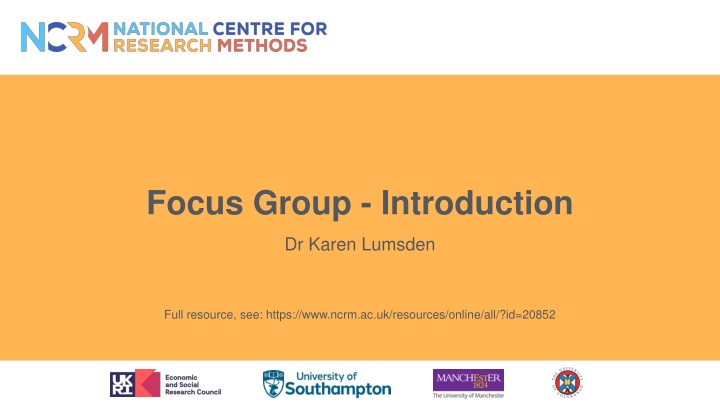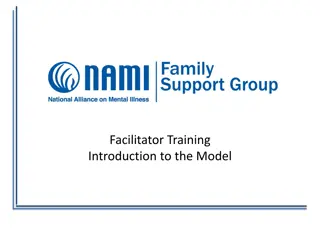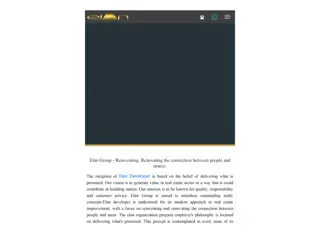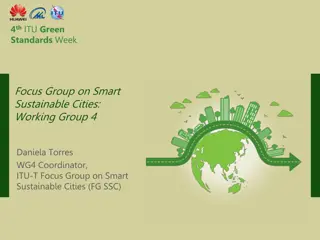
Effective Focus Group Strategies for Qualitative Research
Discover the intricacies of conducting successful focus groups for qualitative research. Learn about designing groups, engaging participants, moderating discussions, and analyzing data. Explore online focus group options and enhance your research methodology.
Download Presentation

Please find below an Image/Link to download the presentation.
The content on the website is provided AS IS for your information and personal use only. It may not be sold, licensed, or shared on other websites without obtaining consent from the author. If you encounter any issues during the download, it is possible that the publisher has removed the file from their server.
You are allowed to download the files provided on this website for personal or commercial use, subject to the condition that they are used lawfully. All files are the property of their respective owners.
The content on the website is provided AS IS for your information and personal use only. It may not be sold, licensed, or shared on other websites without obtaining consent from the author.
E N D
Presentation Transcript
Focus Group - Introduction Dr Karen Lumsden Full resource, see: https://www.ncrm.ac.uk/resources/online/all/?id=20852
Introduction Focus groups are a qualitative method They are used to obtain a wide variety of views or opinions Participants are selected based on their knowledge or experience The interactions that take place between focus group participants are an important part of the context of data generation
Designing your focus groups Focus groups typically involve between 4 and 12 participants Usually groups of strangers, but can be run with groups who already know each other (i.e. coworkers in an organization) Often include payment and/or incentivization Consider how to build rapport and make it a supportive space for participants Number of focus groups in one study varies (between 1-20) Group composition must be carefully considered
Focus group agenda, focusing activities and questions Focus group questions are usually open and exploratory Option to include focusing exercises or activities for participants to engage in Examples: card-sorting, polls, coming to a consensus, problem-solving, feedback on products, timelines, mind-maps, white- boards Consider how to build rapport at the start of the focus group (i.e. ice-breakers and/or introductions)
Moderating focus groups Effective moderation is key in ensuring a successful focus group discussion Encourage group interactions and keep the discussion on track Moderating styles can vary Pay attention to group dynamics May need more than one moderator Record the discussion and take notes on observations
Online focus groups Can widen the pool of available participants (i.e. geographically) Principles and purposes of online focus groups are the same as offline But must consider any differences in terms of methodology, practicalities and ethics Asynchronous: text-based discussions on chat forums or WhatsApp Synchronous: audio-visual conferencing technologies such as Zoom or Microsoft Teams
Analysing focus group data Focus groups generate data which is different from individual interview data Analyse data within context of each focus group discussion Avoid separating out individual statements or views from the focus group and presenting them as such Each focus group is a unit of data
Reflexivity and ethics Reflexivity is a key principle in qualitative research Consider the impact of the moderator/s on each focus group Researcher positionality Ethical considerations include consent, confidentiality, anonymity, privacy and right to withdraw Ensure safety and wellbeing of participants
Summary Focus groups help us to address a variety of questions and insights in social research E.g. views of marginalized groups, citizens, people s lived experiences, expert knowledge, community membership, the dynamics of political processes They explore what people think and also why they think as they do They are flexible in terms of how we design and conduct them (i.e. online or in person)



















